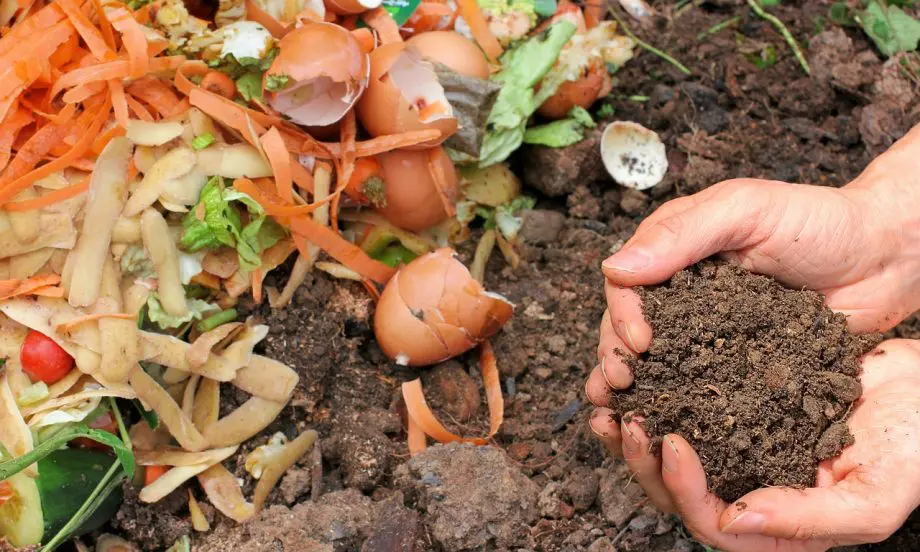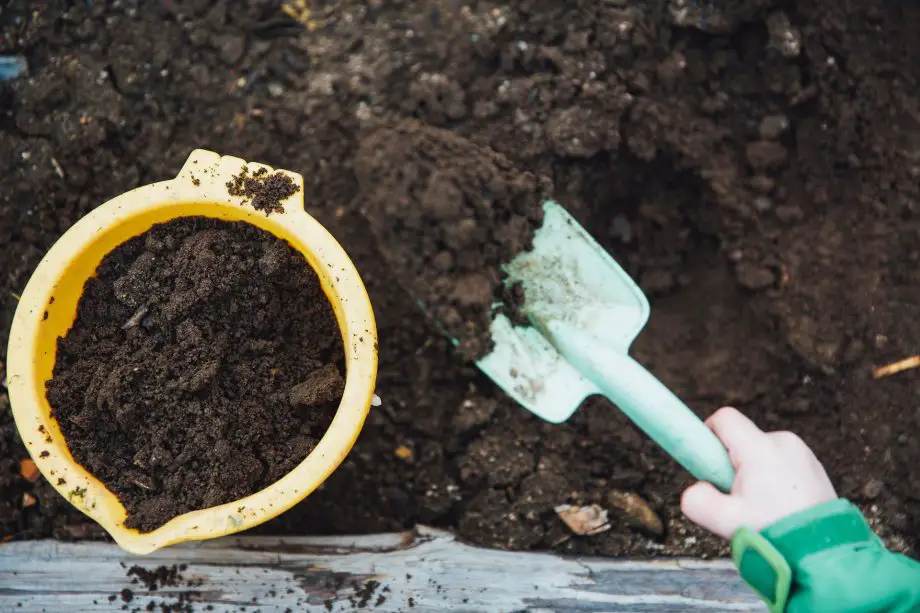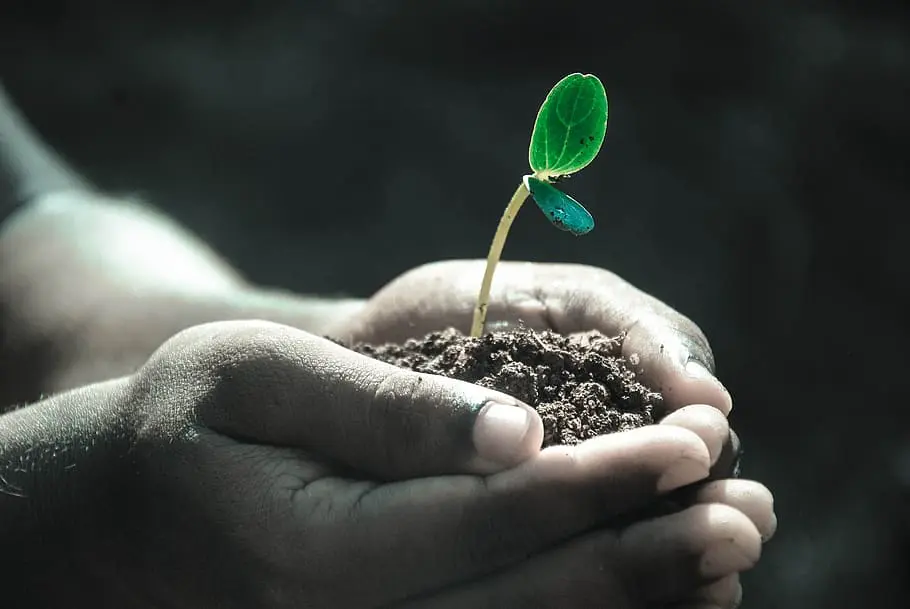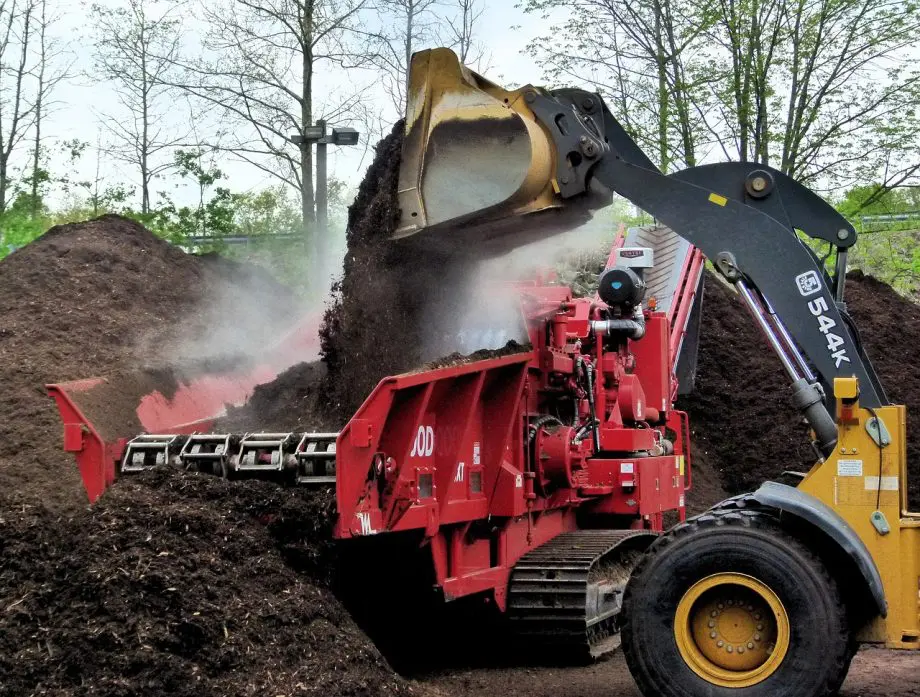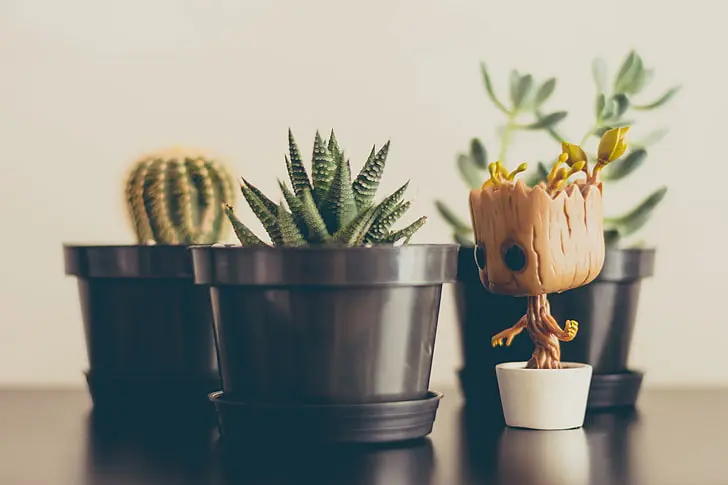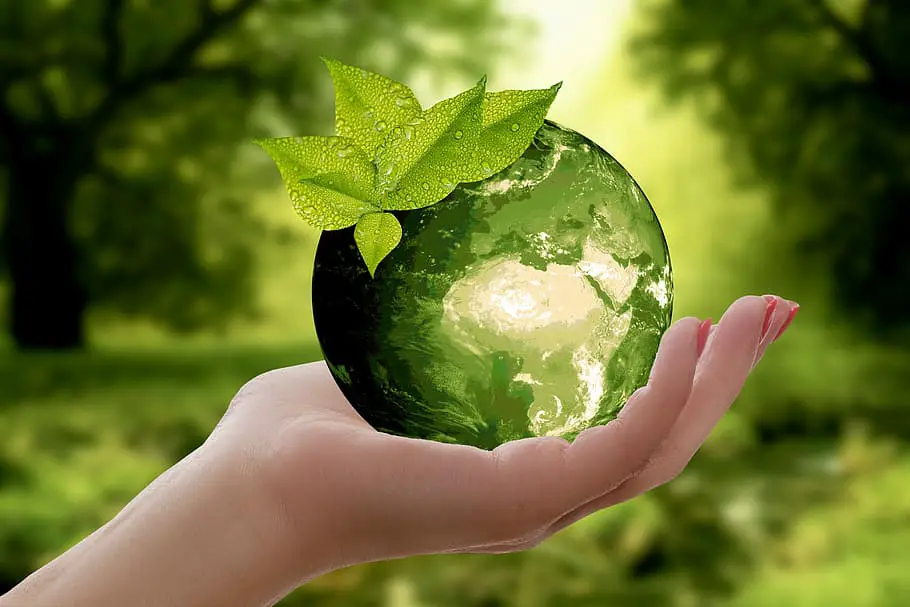
Unlock the secrets of composting with our easy guide Understanding Composting. Turn kitchen scraps into garden gold and make Mother Nature proud. Join us!
Ever wondered how you can turn your kitchen scraps into a treasure for your garden?
Well, the answer lies in ‘Understanding Composting’. It’s a simple, eco-friendly process that can transform your waste into nutrient-rich soil.
Not only does it help your plants thrive, but it also contributes to a healthier planet.
So, let’s dive in and unravel the magic of composting together!
Understanding Composting
Welcome to our comprehensive guide on understanding composting.
If you’ve ever been curious about how to turn your everyday waste into a garden’s best friend, you’re in the right place.
In this post, we’ll explore the science behind composting, the different types you can try, and how to get started right at home.
We’ll also tackle common composting challenges and discuss the incredible impact composting can have on our environment.
So, whether you’re a seasoned gardener or just starting out, there’s something here for everyone.
Let’s embark on this green journey together!
Definition of Composting
Let’s start at the beginning, shall we?
Composting, in its simplest form, is a natural process that transforms your organic waste, think kitchen scraps like vegetable peels, coffee grounds, and eggshells into a rich, earthy substance that gardeners often refer to as ‘black gold’.
This transformation happens thanks to the hard work of microorganisms that break down the waste, turning it into nutrient-rich compost. It’s a bit like magic, but it’s actually science!
Importance of Composting
Now, you might be wondering, Why should I compost? Well, there are a ton of reasons!
For starters, composting is a fantastic way to reduce the amount of waste we send to landfills.
Did you know that about 30% of what we throw away are food scraps and yard waste?
By composting, we can divert these materials from landfills and put them to good use in our gardens instead.
But the benefits of composting go beyond waste reduction. The compost you create is packed full of nutrients that your plants will love.
It improves the structure and health of your soil, helping your plants grow stronger and healthier.
Plus, it’s a natural alternative to chemical fertilizers, which is a win for your garden and the environment.
And speaking of the environment, composting also plays a role in fighting climate change.
When organic waste ends up in a landfill, it decomposes in a way that produces methane, a potent greenhouse gas.
Composting that waste instead can significantly reduce methane emissions.
So, by composting, you’re not just nurturing your garden – you’re also helping to protect our planet. How amazing is that?
Basics of Composting
Ready to get down to the nitty-gritty? Let’s delve into the basics of composting.
This section is all about understanding the science behind this natural process, the steps involved, and the wonderful benefits it brings.
Whether you’re a newbie to the composting world or just need a refresher, we’ve got you covered.
So, let’s roll up our sleeves and get our hands a little dirty as we explore the fascinating world of composting!
The Science Behind Composting
Let’s kick things off with a bit of science. Composting is a natural process, but there’s a whole lot of biology and chemistry happening behind the scenes.
When you add organic waste to your compost pile, it becomes a feast for a host of microorganisms.
These tiny critters, including bacteria, fungi, and even insects, start breaking down the waste.
They use carbon for energy and nitrogen for protein to grow and reproduce.
As they work, they generate heat, which speeds up the decomposition process. It’s a bit like a mini ecosystem in your backyard!
The Composting Process
So, how does composting work in practice? It’s all about balance.
You need a mix of green materials (like vegetable scraps and grass clippings) that are high in nitrogen, and brown materials (like dry leaves and twigs) that are high in carbon.
You also need water to keep the compost pile moist, and air to provide oxygen for the microorganisms.
The process starts when you add your green and brown materials to your compost bin or pile.
The microorganisms get to work, breaking down the materials into compost.
This process can take anywhere from a couple of months to a year, depending on factors like the size of your compost pile, the materials you’re composting, and the weather.
Benefits of Composting
We’ve already touched on some of the benefits of composting, but let’s dive a bit deeper.
Composting is a fantastic way to reduce waste and fight climate change. But it also brings a host of benefits for your garden.
Compost improves soil structure, making it easier for plant roots to grow.
It increases the soil’s ability to hold water, which is great news for your plants during those hot summer months.
It also adds nutrients to the soil, helping your plants grow healthier and stronger.
And the benefits don’t stop at your garden’s edge. By improving soil health, composting also helps to prevent soil erosion, protect water quality, and even increase the soil’s ability to store carbon.
So, by composting, you’re not just creating a great soil conditioner for your garden you’re also contributing to a healthier environment. Now, that’s something to feel good about!
Composting is a controlled, aerobic (oxygen-required) process that converts organic materials into a nutrient-rich soil amendment or mulch through natural decomposition. The end product is compost – a dark, crumbly, earthy-smelling material. Microorganisms feed on the materials added to the compost pile during the composting process. They use carbon and nitrogen to grow and reproduce, water to digest materials, and oxygen to breathe. https://www.epa.gov/recycle/composting-home
Types of Composting
Did you know there’s more than one way to compost? That’s right!
Depending on your living situation, the amount of waste you generate, and how hands-on you want to be, there’s a composting method that’s just right for you.
In this section, we’ll explore the different types of composting, from home composting in your backyard to vermicomposting with worms, and even large-scale industrial composting.
Each method has its own unique benefits and considerations, so let’s dive in and find the one that suits you best!
Home Composting
Home composting is probably the method you’re most familiar with. It’s a great option if you have a backyard and generate a fair amount of kitchen and garden waste.
You can use a compost bin or simply create a compost pile in a suitable spot in your yard.
The key to successful home composting is maintaining a good balance of green and brown materials, turning the compost regularly to aerate it, and keeping it moist but not wet.
With a little patience, you’ll be rewarded with rich, dark compost that your garden will love!
Vermicomposting
Vermicomposting, or worm composting, is a fun and efficient way to compost, especially if you’re short on space.
It can even be done indoors! And it is odor free too.
In this method, you use a special type of worm called a red wiggler to break down your kitchen scraps.
The worms eat the scraps and produce worm castings a super nutrient-rich form of compost.
Vermicomposting is a bit more hands-on than other methods, as you need to take care of your worm population, but it’s a great learning experience, especially for kids!
Industrial Composting
Industrial composting is composting on a large scale.
It’s typically done by municipalities or commercial composting facilities and can handle larger volumes and a wider range of materials than home composting.
This includes things like yard waste, food scraps, and even compostable packaging.
Industrial composting facilities use controlled conditions to speed up the composting process and ensure the compost is safe and high-quality.
The finished compost is then often sold to farmers, landscapers, and gardeners.
In-vessel Composting
In-vessel composting is a type of industrial composting, but it can also be done on a smaller scale.
In this method, organic waste is composted in a closed system, such as a drum, silo, or tunnel.
The conditions inside the system including temperature, moisture, and aeration are carefully controlled to speed up the composting process.
In-vessel composting is a fast and efficient method, and because it’s a closed system, it’s also a good option if odors are a concern.
How to Start Composting at Home
Feeling inspired to start composting at home? In this section, we’ll guide you through the process step by step.
From choosing the right compost bin to deciding what to compost and understanding how to maintain your compost pile, we’ve got you covered.
Composting at home is easier than you might think, and it’s a wonderful way to contribute to a healthier planet right from your own backyard.
So, let’s get started on your composting journey!
Choosing a Compost Bin
The first step in your home composting journey is choosing the right compost bin.
There are many options available, from simple compost piles to plastic bins, wooden crates, or even tumbling composters.
The best choice depends on your needs and the space you have available.
If you have a large backyard, a compost pile or a wooden crate might be a good fit.
If you have a smaller space, a plastic bin or a tumbling composter could be more suitable.
Remember, the compost bin doesn’t have to be fancy. It just needs to hold your compost and allow it to decompose.
What to Compost
Next, let’s talk about what you can compost. A good rule of thumb is to compost plant-based materials.
This includes fruit and vegetable scraps, coffee grounds, tea bags, leaves, grass clippings, and small branches.
You can also compost eggshells and paper products, like newspaper and cardboard.
Avoid composting meat, dairy, and oily foods, as these can attract pests.
Also, avoid composting diseased plants or weeds, as these can spread disease or weed seeds in your compost.
Steps to Start Composting
Starting your compost pile is easy. First, choose a spot for your compost bin or pile.
It should be easily accessible and have good drainage. Next, start your compost pile with a layer of brown materials, like leaves or small branches. This helps with aeration and drainage. Then, add a layer of green materials, like vegetable scraps or grass clippings.
Keep adding layers of brown and green materials, and make sure to keep the compost pile moist, but not wet.
Maintaining Your Compost Pile
Maintaining your compost pile is an ongoing process, but it’s not difficult.
The key is to keep the compost pile balanced and aerated. This means adding a mix of green and brown materials, turning the compost pile regularly to let in air, and keeping the compost pile moist.
If the compost pile starts to smell, it might be too wet or need more air.
If it’s not decomposing, it might be too dry or need more green materials.
With a little practice, you’ll get the hang of it and be on your way to creating rich, nutrient-filled compost for your garden.
Common Composting Problems and Solutions
Composting is a natural process, but like any new endeavor, it can come with its share of challenges.
But don’t worry most composting problems are easy to solve once you know what to look for.
In this section, we’ll cover some common issues you might encounter, from unpleasant odors to pesky pests, and we’ll provide practical solutions to get your compost pile back on track.
Remember, every composting journey has its bumps, but with a little patience and know-how, you’ll be a composting pro in no time!
Bad Odors
If your compost pile starts to smell, it’s usually a sign that something’s off balance.
A healthy compost pile should have a pleasant, earthy smell. If it smells like rotten eggs, it might be too wet or not getting enough air.
This can happen if there’s too much green material and not enough brown material.
To fix this, try turning the compost pile to let in more air and adding more brown materials, like leaves or straw.
If the compost pile smells like ammonia, it might have too much green material. Again, adding more brown materials should help.
Pests
Pests can be a nuisance in the compost pile. Rats, raccoons, and other animals might be attracted to the food scraps in your compost.
To deter them, make sure to bury food scraps under brown materials and avoid composting meat, dairy, and oily foods.
If pests continue to be a problem, consider using a compost bin with a lid or a tumbling composter.
Slow Decomposition
If your compost pile seems to be decomposing slowly, there could be a few reasons.
• It might be too dry, in which case you can water it lightly.
• It might not have enough green materials, which provide nitrogen for the composting microorganisms.
• Try adding more vegetable scraps or grass clippings. The compost pile might also be too small.
• A larger pile will heat up more, which speeds up the composting process.
• If all else fails, turning the compost pile can help to mix up the materials and introduce more air, which should speed up decomposition.
Using Compost in Your Garden
Once you’ve created your rich, nutrient-filled compost, it’s time to put it to good use! But how exactly do you use compost in your garden?
In this section, we’ll guide you through the best ways to utilize your homemade compost to enrich your soil, boost your plants, and create a thriving garden.
From when to use compost to how to apply it, we’ll cover everything you need to know to make the most of your compost.
So, let’s get your garden growing!
When to Use Compost
Knowing when to use compost can make a big difference in your gardening success.
Generally, it’s a good idea to add compost to your garden a few weeks before you start planting.
This gives the compost time to integrate with the soil and start improving its structure and fertility.
If you’re planting in the spring, add compost in the late fall or early winter.
If you’re planting in the fall, add compost in the late summer. You can also add compost to established plants during their growing season to give them a nutrient boost.
How to Use Compost
Using compost in your garden is pretty straightforward.
For new garden beds, you can mix compost into the top few inches of soil.
This helps improve soil structure, moisture retention, and nutrient content.
For established garden beds, you can add a layer of compost around the base of your plants.
This is called side-dressing and it provides nutrients to the plants as the compost breaks down.
You can also use compost as a mulch to help suppress weeds and retain moisture.
Just add a 2-3 inch layer of compost on top of your soil, making sure not to pile it up against the stems of your plants.
Remember, compost is a soil conditioner, not a fertilizer, so it should be used in addition to, not instead of, your regular fertilizing routine.
The Impact of Composting on the Environment
Composting isn’t just great for your garden. It’s also a wonderful way to help the environment.
By composting, you’re reducing waste, improving soil health, and even helping to combat climate change. But how does this all work?
In this section, we’ll delve into the environmental impact of composting, exploring how this simple act can have far-reaching effects on our planet.
So, let’s dig in and discover the power of composting for a healthier, greener world!
Waste Reduction
One of the most immediate benefits of composting is waste reduction.
Did you know that about 30% of what we throw away could be composted instead?
By composting your kitchen scraps and yard waste, you’re diverting a significant amount of waste from landfills.
This not only saves landfill space but also reduces the production of methane, a potent greenhouse gas that’s released when organic waste decomposes in landfills.
So, every time you add to your compost pile, you’re helping to reduce waste and protect our environment.
Soil Health
Composting is also a boon for soil health. The compost you create is rich in nutrients and beneficial microorganisms.
When you add compost to your garden, you’re not just feeding your plants.
You’re also improving the structure of your soil and increasing its ability to retain water.
This leads to healthier, more resilient plants and reduces the need for synthetic fertilizers.
Plus, healthy soil is better at absorbing and storing carbon, which helps to combat climate change.
Climate Change Mitigation
Speaking of climate change, composting plays a surprising role in mitigating this global challenge.
When you compost, you’re helping to sequester carbon in the soil, reducing greenhouse gas emissions.
Plus, by reducing your waste and thus the amount of waste going to landfills, you’re helping to decrease methane emissions.
And let’s not forget the role of compost in growing healthy plants, which absorb carbon dioxide from the atmosphere.
So, while composting might seem like a small act, it’s one way you can make a positive impact on the climate.
Understanding Composting FAQs
Still have questions about composting? You’re not alone! Composting is a fascinating process, and there’s always more to learn.
In this section, we’ll tackle some of the most frequently asked questions about composting.
From the first rule of composting to what’s inappropriate for your compost pile, we’ve got the answers you’re looking for.
So, let’s dive into these FAQs and deepen our understanding of composting together!
Q: What do I wish I knew before composting?
A: Before starting composting, it’s helpful to know that balance is key.
You need a good mix of green materials (like vegetable scraps) for nitrogen and brown materials (like leaves or newspaper) for carbon.
Also, composting is more than just piling up waste.
Turning your compost pile regularly helps speed up the process by introducing oxygen, and keeping the pile moist, but not too wet, is important for the composting microorganisms.
Q: What is the first rule of composting?
A: The first rule of composting is to maintain a balanced diet for your compost pile.
This means adding a mix of green materials, which are rich in nitrogen, and brown materials, which are rich in carbon. A good rule of thumb is to aim for a ratio of 2:1 browns to greens.
This balance helps to ensure that your compost pile decomposes effectively and doesn’t produce bad odors.
Q: What is inappropriate for composting?
A: While many kitchen scraps and yard waste materials are great for composting, there are some things you should avoid.
Meat, dairy, and oily foods can attract pests and create bad odors. Diseased plants or weeds with seeds can spread disease or weeds in your garden when you use the compost.
Also, avoid composting pet waste, as it can contain harmful pathogens.
Q: Which method of composting will break down the fastest?
A: The speed of composting depends on several factors, including the materials you’re composting, the size of your compost pile, and how often you turn it.
However, in general, hot composting tends to be the fastest method. This involves building a large compost pile all at once and turning it regularly to maintain high temperatures.
With this method, you can produce finished compost in as little as a few weeks to a couple of months.
Conclusion
As we wrap up our deep dive into understanding composting, it’s clear that this simple process has far-reaching benefits.
From enriching our gardens to reducing waste and combating climate change, composting is a powerful tool for sustainable living.
In this final section, we’ll recap what we’ve learned and hopefully inspire you to start or continue your composting journey.
So, let’s take a moment to reflect on the magic of composting and look forward to a greener future!
Understanding Composting Recap
We’ve covered a lot of ground in our exploration of composting. Here are the key points:
• Definition and Importance of Composting: We started with understanding what composting is and why it’s so important for our gardens and the environment.
• Basics of Composting: We delved into the science behind composting, the process it involves, and the numerous benefits it offers.
• Types of Composting: We explored different types of composting, including home composting, vermicomposting, industrial composting, and in-vessel composting.
• Starting Composting at Home: We learned how to start composting at home, from choosing the right compost bin to deciding what to compost and understanding the steps involved.
• Common Composting Problems and Solutions: We discussed common composting problems like bad odors, pests, and slow decomposition, and how to solve them.
• Using Compost in Your Garden: We learned how and when to use compost in our gardens for the best results.
• Impact of Composting on the Environment: We discussed how composting contributes to waste reduction, improves soil health, and helps mitigate climate change.
• FAQs: We answered some frequently asked questions about composting to clear up common misconceptions and provide additional insights.
Encouragement to Start Composting
Now that you’re armed with all this knowledge, we encourage you to start composting if you haven’t already.
It’s a rewarding process and composting benefits your garden but it also contributes to a healthier planet.
Remember, every bit of kitchen scrap or yard waste you compost is one less piece of waste going to the landfill.
And the rich, nutrient-filled compost you create is like gold for your garden.
So, why wait? Start your composting journey today and join the ranks of those making a difference one compost pile at a time!





